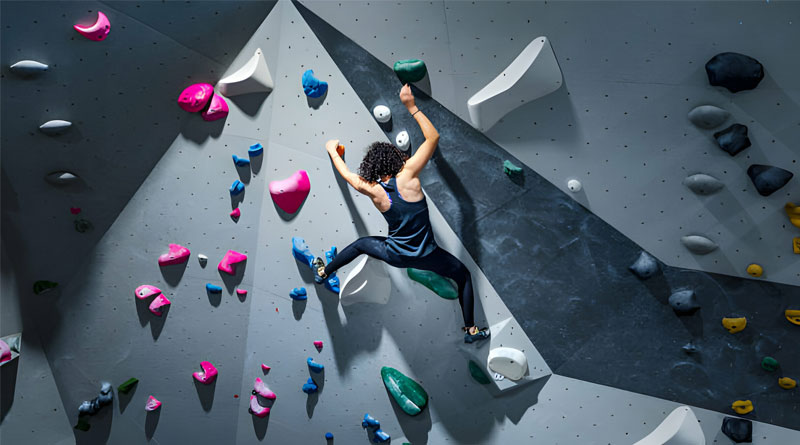Is Rock Climbing in the Olympics?
Rock climbing, once considered a niche sport, has steadily gained popularity over the years, captivating enthusiasts with its blend of physical prowess, mental acuity, and sheer adrenaline. With its inclusion in the Olympics, the sport has reached new heights of recognition and global appeal. This article explores the evolution of rock climbing as an Olympic sport, examining its challenges, triumphs, and the impact of its inclusion on the world stage.
The Rise of Rock Climbing
Rock climbing has a rich history that dates back centuries, originating as a means of exploration and conquest of towering natural formations. What began as a recreational activity for a select few evolved into a thriving community of climbers worldwide. The advent of modern climbing techniques, equipment innovations, and indoor climbing facilities fueled the sport’s growth, attracting participants of all ages and skill levels.
From Crags to Competitions
As rock climbing gained traction, competitive events emerged to showcase the prowess of climbers in various disciplines. Traditional outdoor climbing competitions, such as bouldering, sport climbing, and speed climbing, provided athletes with platforms to demonstrate their skills on natural rock formations. These grassroots competitions laid the foundation for the sport’s eventual inclusion in mainstream sporting events.
The Road to Olympic Recognition
The quest to include rock climbing in the Olympics was a monumental undertaking that spanned decades. Climbing federations, athletes, and enthusiasts lobbied tirelessly for recognition, emphasizing the sport’s global appeal and its alignment with the Olympic values of excellence, friendship, and respect. After years of advocacy and evaluation, the International Olympic Committee (IOC) finally granted rock climbing a coveted spot in the Olympic program.
Debut at Tokyo 2020
The Tokyo 2020 Olympics marked a historic moment for rock climbing as it made its debut on the world’s biggest sporting stage. Athletes from around the globe converged to compete in three disciplines: bouldering, lead climbing, and speed climbing. The Olympic climbing format showcased the diverse skill set of competitors, challenging them to excel across multiple disciplines and formats.
The Thrills and Challenges of Olympic Climbing
Olympic climbing introduced spectators to the dynamic and exhilarating nature of the sport. Bouldering tests climbers’ strength, agility, and problem-solving abilities as they navigate short, challenging routes without ropes. Lead climbing challenges endurance and technique as athletes scale vertical walls, clipping into safety ropes along the way. Speed climbing, the fastest-growing discipline, pits competitors against the clock as they race up standardized routes.
Beyond the Medal Stand
While Olympic climbing brought the sport to a global audience, its impact extends far beyond the medal stand. The inclusion of climbing in the Olympics has sparked renewed interest and participation, inspiring a new generation of climbers to pursue their dreams. The exposure generated by the Olympics has also led to increased investment in climbing infrastructure, training programs, and grassroots initiatives, further fueling the sport’s growth and accessibility.
Challenges and Controversies
Despite its success, Olympic climbing faces its share of challenges and controversies. Critics argue that the Olympic format, which combines multiple disciplines into a single event, dilutes the purity of each discipline and favors certain types of climbers over others. Others raise concerns about the commercialization of the sport and its departure from its roots in outdoor adventure and exploration. Addressing these challenges will be crucial to ensuring the continued growth and integrity of Olympic climbing.
Looking Ahead
As rock climbing continues to evolve, its future in the Olympics appears bright. The sport’s inclusion in the Paris 2024 Olympics and beyond provides an opportunity to refine the format, expand participation, and showcase the athleticism and spirit of climbers from around the world. With each ascent, climbers push the boundaries of human achievement, reminding us that the true essence of climbing lies not in reaching the summit but in the journey itself.
Conclusion
The journey of rock climbing in the Olympics reflects the resilience, passion, and spirit of the climbing community. From humble beginnings to Olympic glory, the sport has captivated hearts and minds, transcending boundaries and inspiring generations. As climbers continue to scale new heights, the Olympic stage serves as a testament to the universal appeal of rock climbing and its enduring legacy as a sport of champions.




